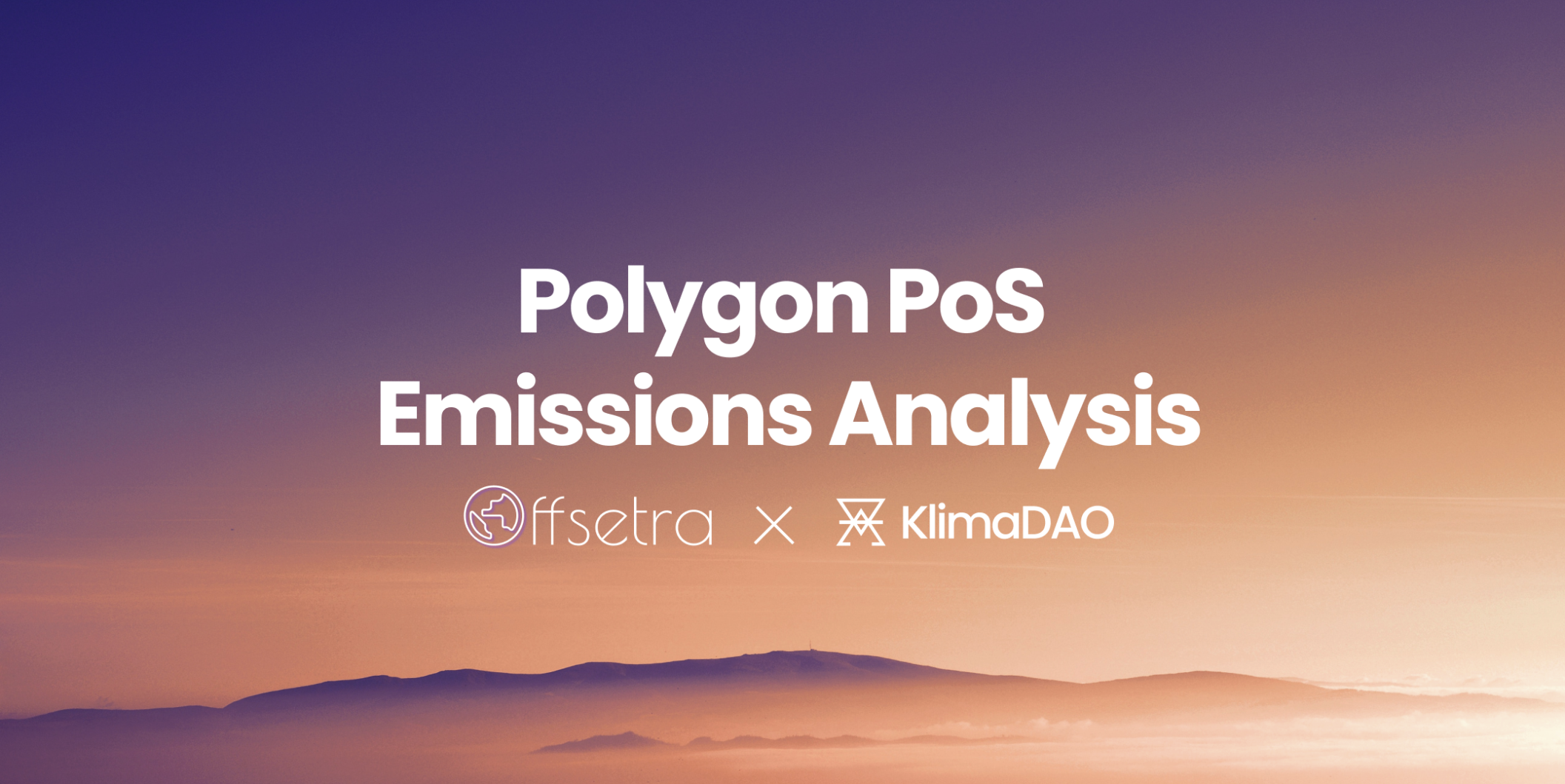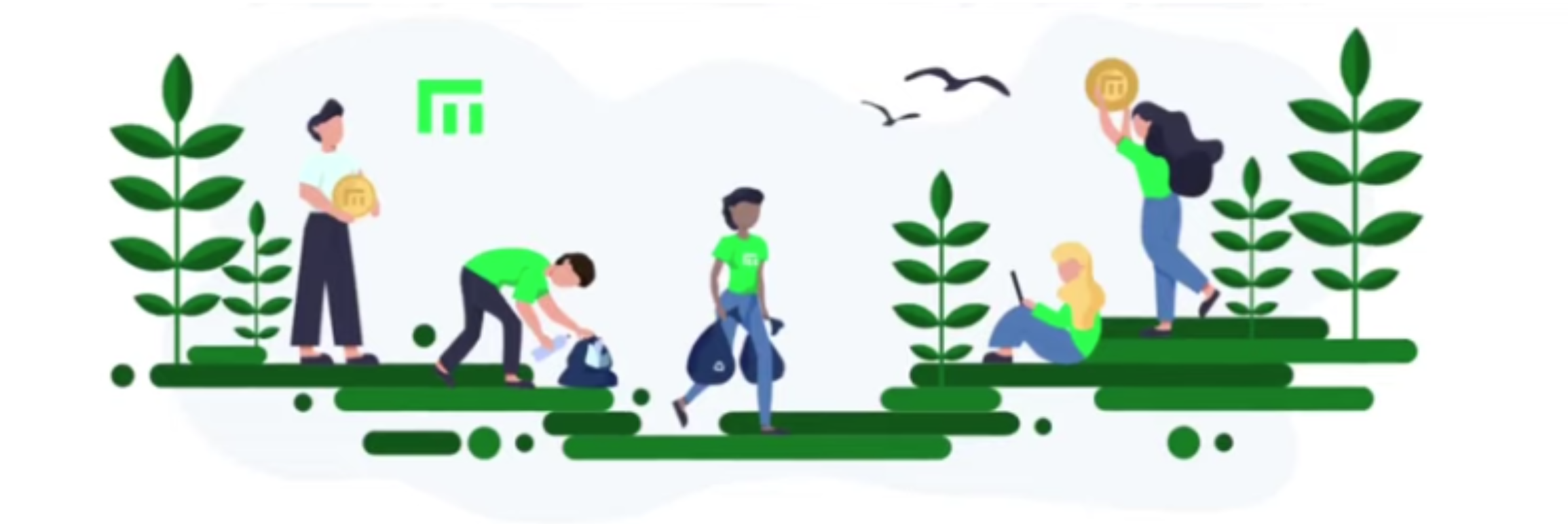Earth Day Retro: Planet Positive NFT Hackathon
The planet positive NFT hackathon was a week-long event with $20,000 in bounties. It was a global virtual event that focused on collaboration to address a handful of challenges set by sponsors.

In last week's ReFi Roundup, we gave a snapshot of the ReFi DAO NFT Hackathon. Today, we wanted to take time to do a little retrospective and share in greater detail what happened, how it worked and why the story of planet positive NFTs is so important for addressing climate change.
TL;DR
The planet positive NFT hackathon was a week-long event with $20,000 in bounties. It was a global virtual event that focused on collaboration to address a handful of challenges set by sponsors. A total of almost 100 people participated, forming 28 teams with several participants investing time and energy in multiple teams.
You can see the overview of the event on Youtube and Notion below:

Aren't NFTs bad for the planet?
Many people might read this and think "planet positive NFTs... isn't that a contradiction?"
In short, while Proof of Work blockchains like Bitcoin and Ethereum are very energy intensive, Proof of Stake chains are incredibly energy efficient. This hackathon had sponsors from Regen, Cosmos, Celo and Polygon ecosystems—all energy efficient Proof of Stake blockchains.
The story of Planet-Positive NFTs
NFTs (non-fungible tokens) have gotten a bit of flak in recent months, as the WWF UK NFT collection was pulled amidst rampant public criticism. The main press which triggered the world's largest wildlife charity to backtrack was published via The Verge and is touted by many to have fundamental misconceptions about the carbon emissions of a Polygon transaction.

A more in-depth analysis of the Polygon emissions by Offsetra and Klima DAO provides a much lower carbon footprint that those provided by Digiconomist back in February. While these might provide two ends of a spectrum for possible emissions associated with Polygon—this is a unique case as a result of it's relationship to Ethereum.

There are dozens of planet positive blockchains—including those represented by our sponsors. Let's not let a shallow misconception of how technology works prevent us from deploying the right tools to address the climate crisis...
Why now
Working in climate can be pretty intense...
We wanted to host a fun community event to experiment with new primitives for planet positive NFTs. Hopefully this is just the beginning of a journey with brilliant people committed to using technology to address the most pressing challenges of our time.

A massive community effort 👏
Many kudos and thanks to Sev Nightingale from Ecolabs who facilitated the hackathon. Huge gratitude to the sponsors who made this possible: ReFi Punks, Regen Network, Celo's Climate Collective, Stargaze, Toucan, SEUN Water and Flowcarbon.

Why these challenges?
The first 3 challenges were very broad questions to allow for creative expression and be inclusive of projects that didn’t fit in a specific category. ReFi DAO used the Three Pillars of ReFi described by John Ellison in his article "What is ReFi? Part I — A tour through the climate crypto rabbit hole"
1) Create NFTs helps stabilize our climate
2) Create NFTs that helps restore our ecosystems
3) Create NFTs that help address social injustice & inequality
Given so much of the web3 community comes from the West, we thought it was important to put prizes beyond efforts that look to take a collaborative approach to designing systems to serve land stewards and frontier communities.
Justice, Equity, Diversity, and Inclusion
4) Create tools, systems and frameworks in collaboration with indigenous land stewards to onboard frontier communities into web3.
Bonus prize for challenges 1-4: Create mobile-first NFT experiences that incorporate Valora, Keyko and/or Celo stablecoins (cUSD, cEUR, and cREAL).

Regen & Stargaze
5. Create NFT infrastructure and tools for minting, auctions, or marketplaces that automatically offset the carbon footprint using tokenized impact credits like EcoCredits, NCT, BCT, GNT, & NRT.
Bonus Prize: build an MVP on Cosmos, that integrates both Stargaze & Regen ledger. (additional details here)
7. Create an easy to Implement MVP that tests Stargaze and Regen Ledger functionality (additional details here)
Part one of my 'should I follow this person' flowchart - do they have a #ReFi orb? 👀
— Rez (🧘♂️,🌳) (@0xRez) May 8, 2022
ReFi movement
With the ReFi Orb taking wings as a symbol to gather the regenerative finance movement, we wanted to see how far we could take this and encourage new experiments to help provide people with a way to signal their involvement in the community.
6. Create artwork for a PFP or banner, designed for twitter or discord, that is representative of the ReFi movement. Incorporating & including references, archetypes, & aesthetics of existing ReFi projects
been hearing a lot about this #orb
— TMO (@tmoindustries) May 4, 2022
no wonder.... it is famous#ReFi @ReFiDAOist
cred @KDaverington for the nudge & @climateXcrypto for the lead pic.twitter.com/YlgnzJcuBm
Who made this happen
- Sev from Ecolabs led the facilitation with support from Daryl Edwards and Shuya Gong. We couldn't have done this without you!
- Judges were selected because of their experience in NFTs, design skills, and/or regenerative and sustainability backgrounds: Nathalie Pannetier (NP Solutions), Tim Carter (Athena Protocol), Cory Levinson (Regen Network), Thomas Morgan (BasinDAO), Ashanti Esculpi (FlowCarbon), John Yu, Shuya Gong (IDEO), & Ellie Young (Common Action).
- Sponsors: ReFi Punks, Regen Network, Celo's Climate Collective, Stargaze, Toucan, SEUNwater, & Flow Carbon.
How did it work?
- We created a virtual space in Miro for the design challenges and used our extensive Discord channels to coordinate action. By creating ‘team islands’ it helped us visualize who was out there and what they were working on - this brought more clarity, as well as a customizable camp site that made it fun and increased collaboration for new participants to come join a team.
- Participant voted “Who outside your team deserves to be recognized for how collaborative, helpful, or insightful they were during this event?”. We gave them each 10 points to divvy out to all and any participants, and the top 20 people all got $200!
Winners ($1000 per winning team)
Challenge 1 winner: Team #5 Digital Charity Art
Digital Charity Art is a small team of New Zealanders who share a passion for blockchain, and the opportunity to make a positive difference in the world by connecting charities to the world of Non-Fungible Tokens (NFTs). The ultimate goal of Digital Charity Art is to harness the enthusiasm and vast potential of NFTs and channel it towards the organisations that need help the most.
Challenge 2 winner: Team #55 Empower

Plastic Heroes is a dynamic NFT collection that cleans up plastic waste by linking to Plastic Credits issued on Empower. Empower generates value out of plastic waste - enabling collectors, recyclers, brands and consumers to make a real impact on the environment.
Challenge 3 winner: Team #46 Land Preservation Protocol
Land Preservation Protocol uses fractionalized real world asset NFTs for community-based land justice. This project has the potential of giving ownership of land back to the people who live in the area and increases the power of minority populations to protect their land and their health.
Challenge 4 winner: Team #37 Coffee Carbon Collection
NFT collection that raises funds to set up and run programs for coffee farmers to switch to sustainable agricultural practices and be rewarded. The NFTs will use unique visual art that tells the story of a farmer, land and farm - a combination of photos taken at farms, verified by a geotag.
Challenge 5 winner: Team #35 ReVesture
ReVesture is a MetaVerse VR NFT Marketplace using Toucan NCTs for carbon sequestration. They aim to create climate positive wearables, avatars, and worlds marketplace for the growing VR and MetaVerse participation, and provide a fun way for people, DAOs, and other organisations to support carbon sequestration while onboarding into MetaVerse spaces.
Challenge 6 winner: Team #27 Solar Sasquatch Squad
Sasquatches have been elusive for centuries. Now they are coming out of the woodwork because of climate change.
However, these Sasquatches are different. This time they're Bigfoot—no footprint.
Solarpunk sasquatch characters are NFTs where the sales go to Carbon Credit Liquidity Pools and the yield is continuously used to retire carbon credits.
Challenge 7 winner: Team #13 Oika
Oika aims to couple ecological health to economic wealth via regenerative NFT art. Oika is a community of ecologists, artists, and art buyers who use art to initiate and grow ecological regeneration projects.
3rd place ($2,000 prize): Team #42 Agroforestry Journals NFT
Their purpose is to create a learn-to-earn ecosystem where apprentices are incentivized to level up while accessing land to produce food, steward seeds, and create content through monthly journals.
2nd place ($3000 prize): Team #44 ORGO
An app that gamifies volunteerism with rewards and enables integration with data tracking for other projects in web3. They are on a mission to regenerate the planet. They are going to issue blockchain credentials to existing land stewards and capture human sensor data to back #ReFi impact claims.
1st place ($3500 prize): Team #33 CO2CULT
Inspired by the ReFi DAO Orb, CO2CULT is forking the Nouns DAO auction mechanism and creating a custom offsetting smart contract to automatically and continuously offset NCT. Their goal is to become the first “green-chip” NFT.
What’s next?
Phase 2
Winning ideas will continue to refine their concepts and grow their project. We'll host a series of feedback sessions between the teams and some of the judges, with workshops organized around team feedback on what would be most helpful. We will also connect teams with coaches, mentors and advisors coming from the ReFi DAO community.
Phase 3
We’ll be creating a process for teams to pitch to investors to get more support in implementation and execution of ideas.
What did we learn?
If we do this again next year, we would drop the NFT aspect and just make it a ReFi hackathon, however some instances NFTs make sense but for the most part a broader set of web3 enabled tech options would widen the possibilities of what we could create.
People are very eager to collaborate in a more structured way. The feedback was overwhelmingly positive about the space to work and connect with others over these ideas.
Initially we set aside 3 days for the hackathon with one day for the actual hack. However facilitating meaningful collaboration in a disjointed global time frame meant we had to hold a vote to extend the hack by three extra days to allow for more asynchronous activities.
At least 5 of the 28 submitted ideas were brand new ideas, most of the others had already been in formation to a degree.
To increase collaboration even further, we had to provide more structured space for teams on the Miro boards—the challenge would be next time to create a better methodology for match making participants to teams.
To increase the diversity of participants, the choice of accessible tools (like Miro) is key.
Get involved!
We've love to have you in the ReFi DAO discord if you'd like to be apart of our community moving forward. It's invite only at the moment. If you've read this far: Consider yourself invited!
1. Want to mentor or coach a winning team? We need experts and bright minds who can offer time to participate in one of our upcoming workshops.
2. Want to invest in a promising project that addresses a problem you care about?
Send an email to sevnightingale@gmail.com for early access to our hackathon investor day or to mentor one of the teams.
3. Did you participate? Any hackers, sponsors or judges, please fill out this form and help us improve for the next one!
Happy hacking... 🌎➕




